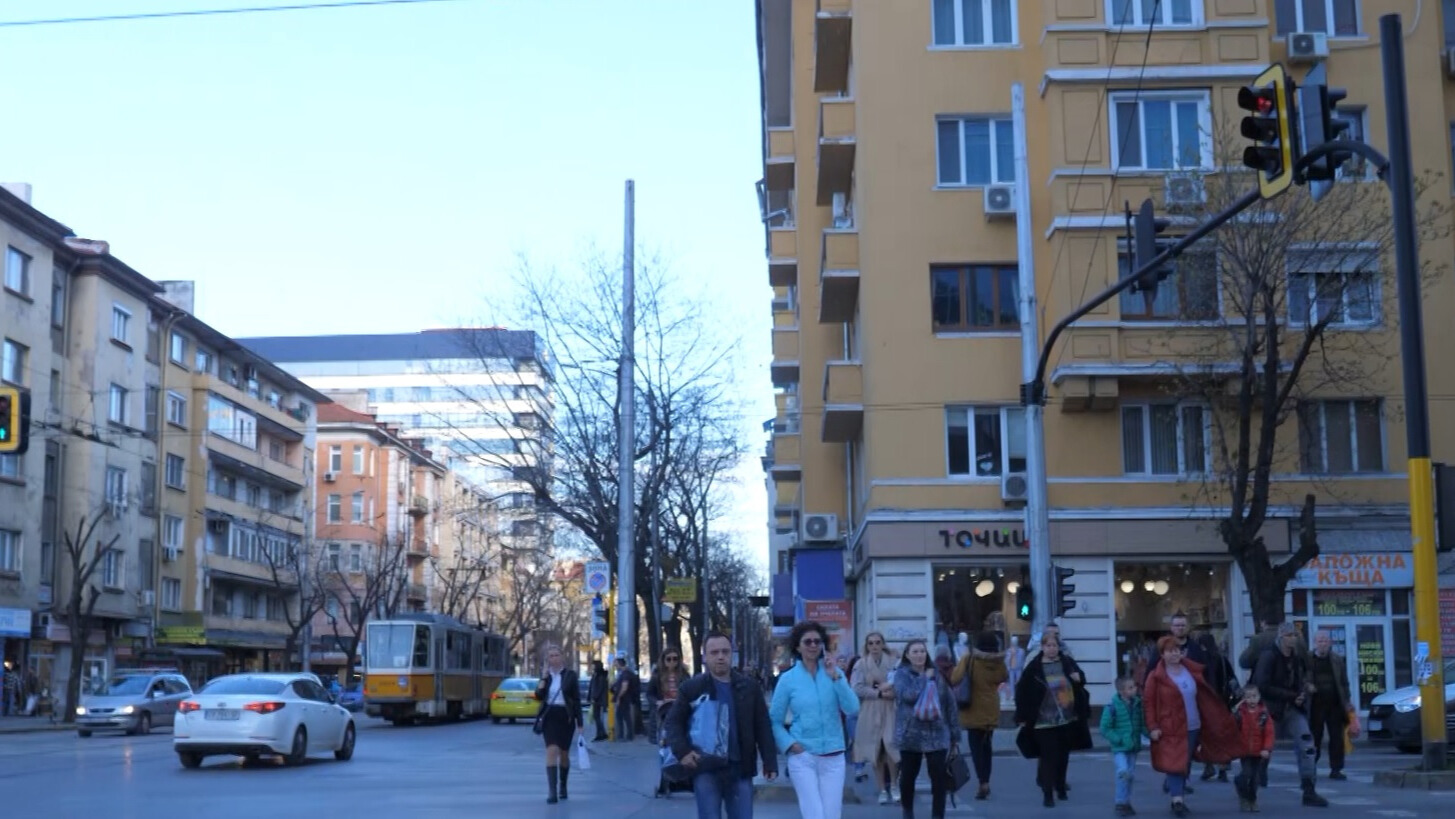03:49

The European Union is fast losing its working-age population. That's the conclusion of a recent report by the European Commission which says the bloc has lost close to five million people of working age in a decade.
The problem is pronounced in Bulgaria, considered the world's fastest-shrinking nation; the country has lost more than 11 percent of its population to emigration over the past 10 years.
It's 10 minutes before air time, and Petya Kertikova is polishing the final draft of her script.
She is the host and founder of a news program called "The Returnees," which airs on Bulgaria's ON Air Television Station. The show highlights the achievements of Bulgarians that have returned to their homeland after living abroad.
"I believe the people who return, their voice is very important," said Kertikova. "They have lived their American Dream, or I don't know their Nigerian Dream; whatever dream, I want them to live their Bulgarian dream. I want our country to be a part of Europe. I mean, really be a part of Europe, not only on paper on documents.”
READ MORE
President Xi talks to Ukraine's Zelenskyy
Butt out: Cigarette pollution in Lisbon
EU living in 'fragile financial world'

Bulgarian TV presenter Petya Kertikova hosts a show highlighting the achievements of Bulgarians who have returned to the country and launched flourishing careers after living abroad. /CGTN.
Bulgarian TV presenter Petya Kertikova hosts a show highlighting the achievements of Bulgarians who have returned to the country and launched flourishing careers after living abroad. /CGTN.
Bulgaria, which joined the European Union in 2007, is the poorest state in the bloc. Analysts suggest the struggling economy is a key driver for the nearly 900,000 Bulgarians, according to the last census, who have emigrated in the past decade.
The only population bump came in 2020 during the COVID-19 pandemic when around 600,000 Bulgarians returned home. According to Kertikova, many returnees started businesses, bringing their experience overseas to their home country.
"The people who return are making a difference, not only in Sofia but small parts of the country," said Kertikova.
Robert Zhelyazkov is one of those Bulgarians who returned after many years abroad and decided to give back. Zhelyazkov studied finance in the United States and became the Chief Financial Officer of a successful startup in New York City. But despite his professional achievements, he never felt at home in America.
"When I lived in the States, I had a very easy life," said Zhelyaszkov. "I made a lot of money. I had a huge house, had a nice car, all those things. Now I don't have any of those things, however, I feel personally fulfilled in what I do.”
On his return two years ago, Zhelyazkov launched the Dari Vreme Foundation, which teaches financial literacy and provides low-cost professional services to low-income Bulgarians. The foundation also coaches job seekers to develop interview skills and polish résumés.

Bulgaria, which joined the European Union in 2007, is the poorest nation in the bloc. Analysts believe the country's struggling economy is the reason why the country's population has shrunk by 11% in 10 years. /CGTN.
Bulgaria, which joined the European Union in 2007, is the poorest nation in the bloc. Analysts believe the country's struggling economy is the reason why the country's population has shrunk by 11% in 10 years. /CGTN.
"There is a nuance, a narrative in Bulgaria that states that everything is lost, the government is not where it's supposed to be; subsequently, the people are not where they are supposed to be," said Zhelyaszkov. "However, I don't believe that is true, and I think that with Dari Vreme, we can provide hope.”
Many of the Bulgarians that have left the country are of working-age and university educated, a brain drain for the nation.
But when Bulgaria's professionals leave this country for better opportunities elsewhere, there is a chance for them to help those left behind. A local non-profit organization is keeping those working overseas engaged with what's happening here, giving them a chance to mentor students and share their expertise with local businesses.
Hrtisto Boyadzhiev founded the TUK TAM foundation 15 years ago and launched a platform to connect Bulgarian professionals abroad. Currently there are more than 20,000 members and the group has also provided more $250,000 in scholarships for Bulgarian students.
"I have friends that work in Space X and NASA, their career trajectories are incredible, They don't need to be back to Bulgaria," said Boyadzhiev.“But imagine if 100,000 of those guys spent one hour a week helping the entrepreneurs in Bulgaria, motivating young students, non-profits, helping the government in Bulgaria, how about we think of Bulgaria as a global nation, as a digitally connected global nation.”
And as Kertikova wraps-up another edition of "The Returnees,”she thinks about the time she returned to Bulgaria after studying journalism in Texas and a stint as a reporter in Chicago.
"I feel like I never left the country, you keep it always here in your heart," said Kertikova.
Coming back, she says is not the hardest part. That, she says, is leaving in the first place.
Subscribe to Storyboard: A weekly newsletter bringing you the best of CGTN every Friday